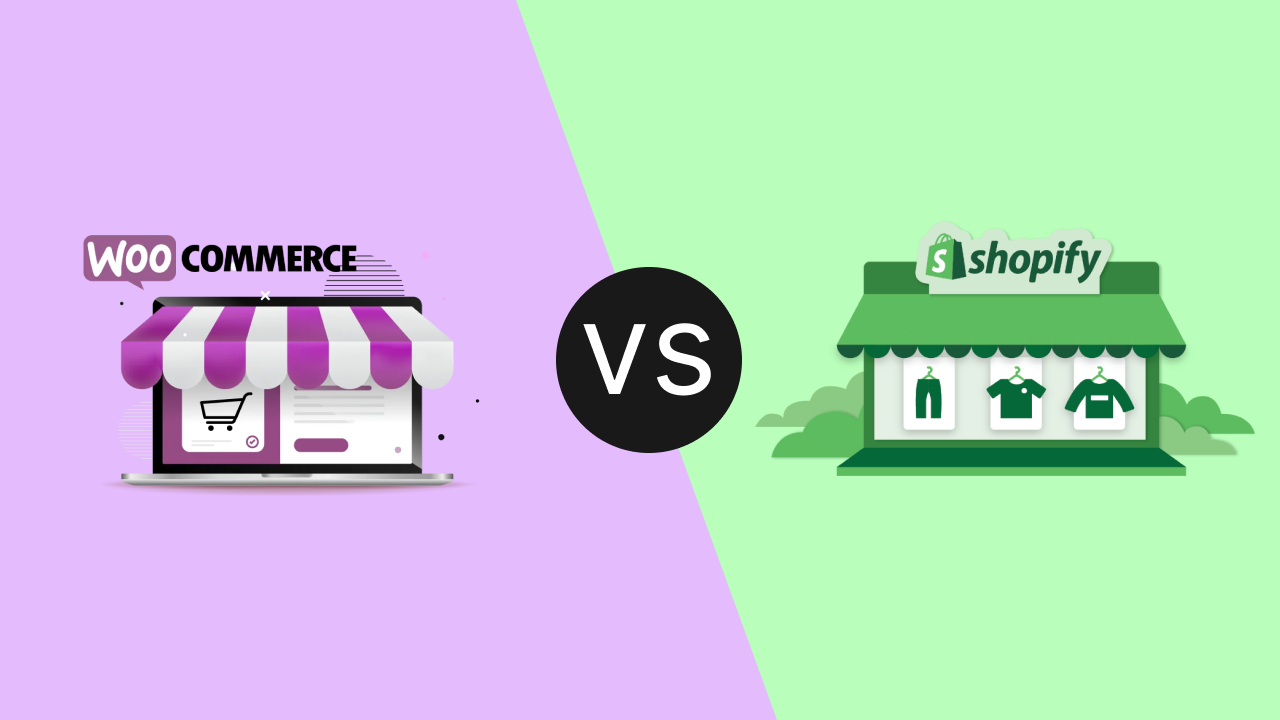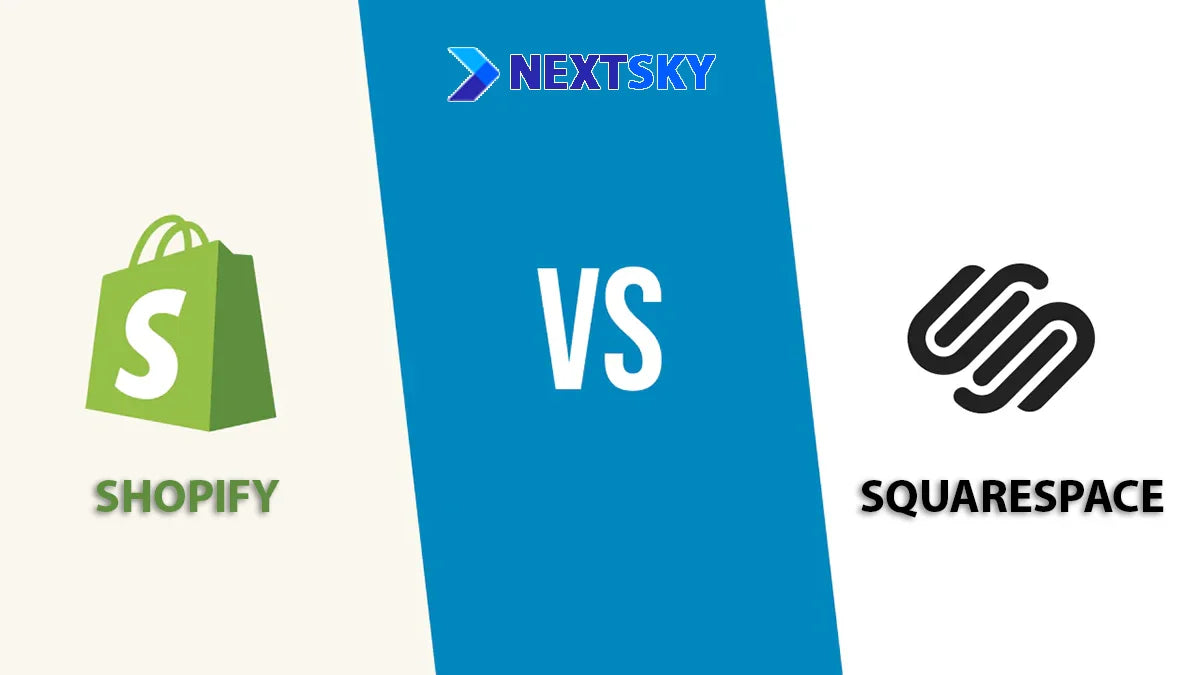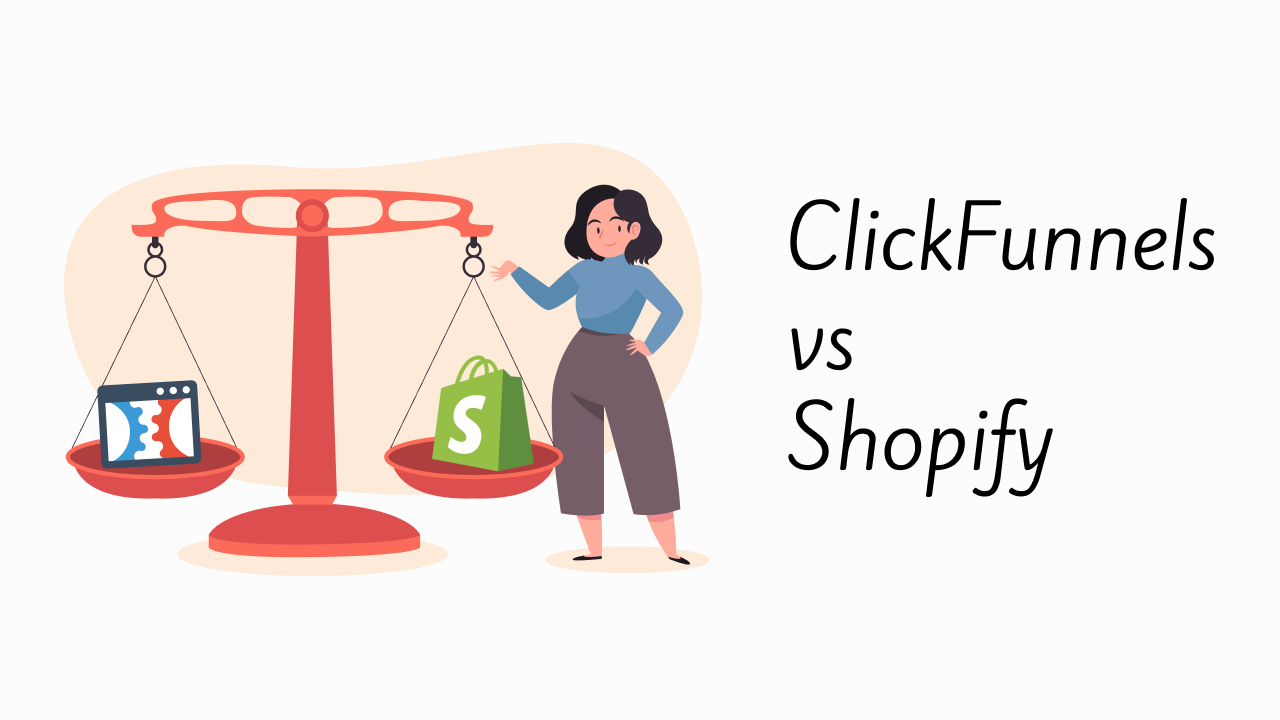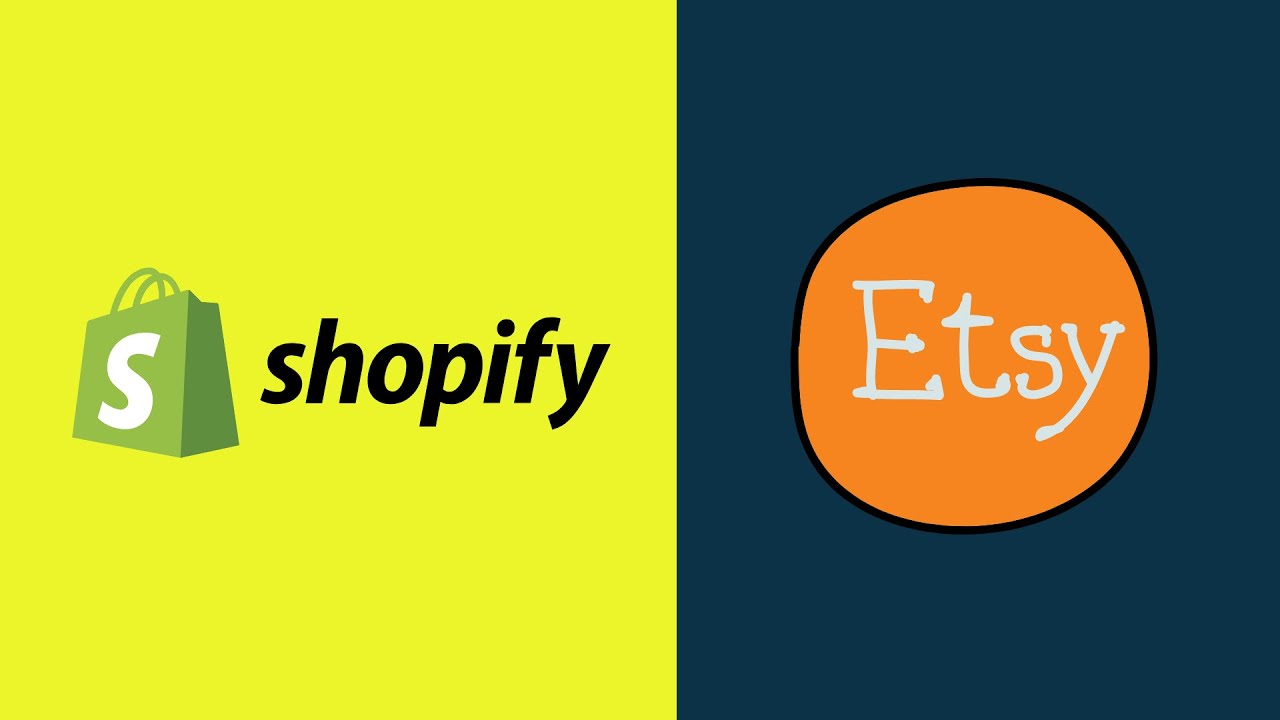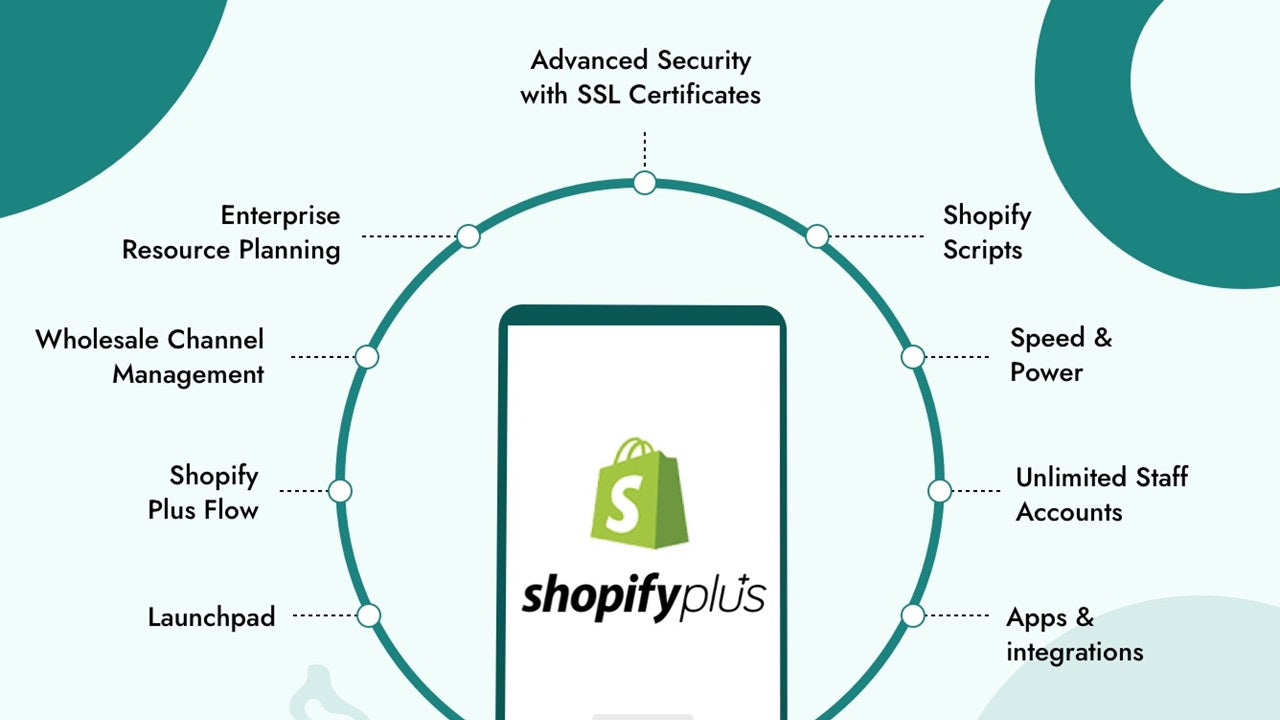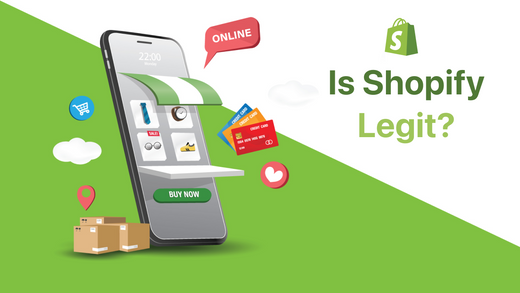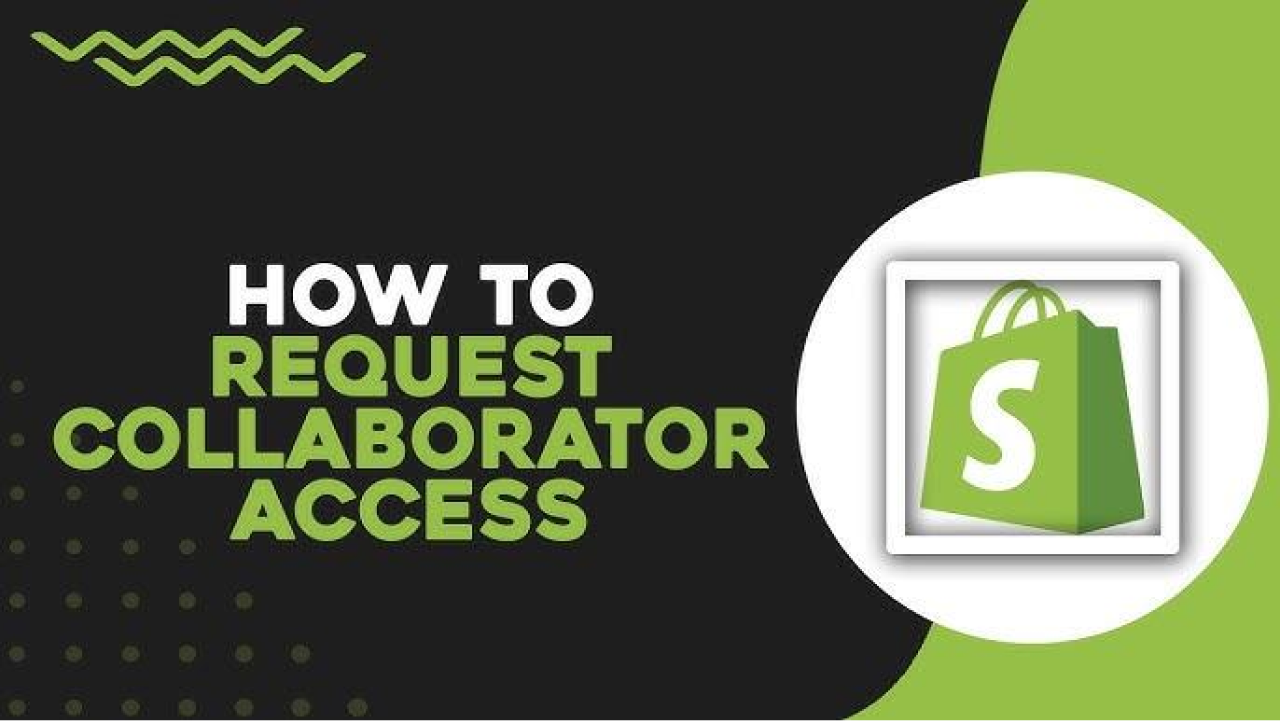Shopify vs Salesforce Commerce Cloud: Which One Wins?
Table of Contents Hide
Choosing between Shopify and Salesforce Commerce Cloud can be challenging. Shopify is known for its ease of use and affordability, while Salesforce Commerce Cloud offers enterprise-level customization and AI-driven features.
In this guide, Nextsky will compare both platforms to help you decide which one suits your business best.
Let’s dive in! 🚀
Overview of Shopify and Salesforce Commerce Cloud
Shopify is a widely recognized eCommerce platform designed to help businesses of all sizes create, manage, and grow their online stores with ease.
In contrast, Salesforce Commerce Cloud (formerly Demandware) is a cloud-based solution built specifically for large enterprises and global retailers, offering advanced customization, scalability, and AI-driven features.
The table below provides a quick overview of Shopify and Salesforce Commerce Cloud.
| Factor | Shopify | Salesforce Commerce Cloud |
|---|---|---|
| Founded | 2006 | Originally Demandware (2004), acquired by Salesforce in 2016 |
| Number of Websites | Around 5.54 million active websites (2025) (shoptrial.co) | Around 7,443 active websites (2025) (trends.builtwith.com) |
| Primary Users | Small and medium-sized businesses, startups, growing brands | Large enterprises, global retailers, complex eCommerce operations |
| Ease of Use | Simple, intuitive interface, easy setup, no coding required | Requires technical expertise for customization |
| Customization | 210+ customizable themes, 8,000+ apps for extended functionality | Highly customizable but complex setup, supports multi-store management |
| AI & Personalization | Basic AI through third-party apps | Built-in AI-driven personalization (Einstein AI) |
| Scalability | Shopify Plus supports high-traffic businesses | Handles large-scale traffic and demand spikes |
| Omnichannel Selling | Sell on websites, social media, Amazon, and POS | Advanced omnichannel capabilities with deep CRM integration |
| Marketing & SEO | Built-in marketing tools, supports on-page and off-page SEO | AI-driven marketing, robust merchandising tools |
| Security & Hosting | Hosted platform with high security and global accessibility | Multi-tenant architecture with automatic updates |
| Support | 24/7 customer support, Help Center, Community Forum, chatbot | Enterprise-level support, but complex issue resolution |
| Pricing | Starts at $39/month, Shopify Plus: $2,000+ | Custom pricing, high total cost of ownership (TCO) |
Shopify vs. Salesforce Commerce Cloud: Detailed Comparison
Pricing (Shopify win)
When evaluating pricing structures, Shopify offers a transparent and affordable tiered system, making it an attractive option for many businesses. In contrast, Salesforce Commerce Cloud employs a revenue-based model, which can be more costly, particularly for small and medium-sized enterprises.
Shopify Pricing
Shopify provides several plans to accommodate businesses at different stages:
- Basic Shopify: $39 per month, with transaction fees of 2.9% + 30¢ per online transaction.
- Shopify: $105 per month, with transaction fees of 2.6% + 30¢ per online transaction.
- Advanced Shopify: $399 per month, with transaction fees of 2.4% + 30¢ per online transaction.
- Shopify Plus: Custom pricing starting at $2,300 per month, designed for enterprise-level needs.

Each plan includes essential eCommerce features, with higher tiers offering advanced analytics, reduced transaction fees, and greater customization options.
Salesforce Commerce Cloud Pricing
Salesforce Commerce Cloud utilizes a revenue-based pricing model, where costs are determined by your store's gross merchandise value (GMV) and required features. As of 2025, the pricing structure is as follows:
- Commerce Cloud Pay-As-You-Go: 1% of GMV, billed monthly.
- Commerce Cloud Growth: 1% of GMV, billed annually, includes 6 storefronts, order management lite, and analytics tools.
- Commerce Cloud Advanced: 2% of GMV, billed annually, offers 10 storefronts, full order management, and advanced analytics and personalization features.

Additional costs may include implementation fees and ongoing maintenance, which can be substantial depending on the level of customization and support required.
Which Platform Is More Cost-Effective?
- Small and Medium-Sized Businesses: Shopify is generally more cost-effective due to its straightforward pricing and lower initial investment.
- Large Enterprises: Salesforce Commerce Cloud may offer enhanced flexibility and scalability but often comes with a higher total cost of ownership.
📌 Winner: Shopify – Its clear pricing structure and affordability make it the more budget-friendly choice for most businesses.
Ease of use (Shopify Win)
Shopify excels in user experience, particularly for those without a technical background. Its drag-and-drop interface simplifies tasks like adding products, managing inventory, and fulfilling orders, making overall store management straightforward and accessible.

In contrast, Salesforce Commerce Cloud requires a higher level of technical proficiency for setup and ongoing management. Tasks such as customizing the checkout process or integrating complex third-party applications often necessitate coding knowledge and may require additional developer assistance.

Shopify stands out with its user-friendly design, making it ideal for non-technical users. While Salesforce Commerce Cloud offers extensive documentation, its complex setup and customization requirements can be daunting for those without technical expertise.
E-commerce Features (Shopify Wins)
E-commerce features are crucial when comparing Shopify vs. Salesforce Commerce Cloud. While both platforms offer powerful tools, Shopify provides a more user-friendly and versatile solution, making it the better option for most businesses.
Product and Order Management
Shopify excels in product and order management with its real-time inventory tracking, automated fraud detection, and integrated fulfillment solutions. Key features include:
- Multi-location inventory management to track stock across different warehouses.
- Order tracking and notifications for both merchants and customers.
- Easy returns and exchanges handled directly from the dashboard.
- Automated shipping label printing and discounted carrier rates.
Salesforce Commerce Cloud, on the other hand, offers enterprise-level order management features:
- AI-powered order routing for optimized fulfillment.
- Cross-channel order management for both online and in-store purchases.
- Advanced global inventory distribution and orchestration to handle high-volume sales.
📌 Nextsky’s Verdict: Shopify provides a more accessible solution for businesses of all sizes, while Salesforce Commerce Cloud is better suited for large enterprises with complex fulfillment needs.
Customer Relationship Management (CRM)
Shopify includes basic customer profiles, allowing merchants to track order history, customer notes, and marketing preferences. It also integrates with third-party CRM apps through the Shopify App Store.
However, Salesforce Commerce Cloud takes CRM to the next level by integrating seamlessly with Salesforce CRM, offering:
- 360-degree customer insights for advanced sales and marketing analysis.
- AI-driven customer segmentation and personalized recommendations.
- Powerful customer analytics and sales forecasting tools.

📌 Nextsky’s Verdict: Salesforce Commerce Cloud wins in CRM, providing superior customer insights and automation. However, Shopify’s CRM features are sufficient for most small and mid-sized businesses.
Point of Sale (POS) System
Shopify offers a native POS solution, enabling seamless in-store and online sales integration. Features include:
- Shopify POS app for mobile and in-store transactions.
- POS hardware available directly from Shopify.
- Advanced reporting and analytics for tracking sales performance.
Salesforce Commerce Cloud does not offer a built-in POS system. Instead, it requires third-party integrations, which can be costly and complex.
📌 Nextsky’s Verdict: Shopify wins by offering a fully integrated POS solution that is easier to set up and use.
Payment Options
Shopify supports 100+ external payment gateways and offers Shopify Payments, which eliminates transaction fees for built-in payments. Additional features include:
- Multi-currency support for personalized customer experiences.
- Fast and secure transactions with Shopify Payments.

Salesforce Commerce Cloud provides Salesforce Payments, but it has fewer payment integrations compared to Shopify.
📌 Nextsky’s Verdict: Shopify wins due to its wider payment gateway support and fee-free Shopify Payments option.
Mobile Commerce
Both platforms support mobile-friendly shopping experiences with:
- Fast-loading mobile pages.
- Seamless checkout experiences.
- Mobile wallet and contactless payment support.

However, Shopify's faster loading speeds and better mobile optimization give it an edge.
📌 Nextsky’s Verdict: Shopify slightly outperforms Salesforce Commerce Cloud in mobile commerce.
SEO & Marketing (Salesforce Commerce Cloud Wins)
SEO and marketing play a crucial role in helping online stores reach their target audience and boost sales. While Shopify provides basic marketing tools, Salesforce Commerce Cloud surpasses it with AI-driven automation, cross-channel campaign management, and advanced customer segmentation.
SEO Optimization
| Feature | Shopify | Salesforce Commerce Cloud |
|---|---|---|
| Automatic Sitemap Generation | ✅ Yes | ✅ Yes |
| Canonical Tags to Prevent Duplicate Content | ✅ Yes | ✅ Yes |
| Customizable Meta Titles & Descriptions | ✅ Yes | ✅ Yes |
| AI-Powered SEO Optimization | ❌ No (requires third-party apps) | ✅ Yes (built-in AI recommendations) |
| Structured Data for Rich Snippets | ❌ No (requires third-party apps) | ✅ Yes (automatic structured data integration) |
| Real-Time SEO Performance Tracking | ❌ No (requires third-party analytics) | ✅ Yes (integrated analytics) |

📌 Nextsky’s Verdict: Salesforce Commerce Cloud takes the lead in SEO with AI-powered recommendations, automatic structured data integration, and real-time performance tracking. Shopify relies heavily on third-party apps to enhance its SEO capabilities.
Marketing Features
| Feature | Shopify | Salesforce Commerce Cloud |
|---|---|---|
| Automated Welcome Emails for New Subscribers | ✅ Yes | ✅ Yes |
| Customizable Email Templates | ✅ Yes | ✅ Yes |
| Shopify Email for Campaigns | ✅ Yes, but limited features | ❌ No, but integrates with advanced email tools |
| AI-Powered Content Personalization | ❌ No (requires third-party apps) | ✅ Yes (built-in AI personalization) |
| Multi-Channel Campaign Automation (Email, Social, Website) | ❌ No (requires third-party apps) | ✅ Yes (fully integrated) |
| Advanced Customer Segmentation (Behavior & Demographics) | ❌ No (basic segmentation only) | ✅ Yes (AI-driven segmentation) |
| A/B Testing for Store Optimization | ❌ No | ✅ Yes |
| ROI & Marketing Performance Tracking | ❌ No (requires third-party analytics) | ✅ Yes (built-in performance analysis) |
📌 Nextsky’s Verdict: Salesforce Commerce Cloud dominates marketing with AI-driven automation, advanced customer segmentation, and built-in A/B testing. Shopify’s marketing tools are user-friendly but limited without third-party integrations.
Scalability (Salesforce Commerce Cloud Win)
Shopify is a powerful platform for growth, offering 99% uptime, seamless multi-store management, and extensive integrations. It's an excellent choice for businesses of all sizes, particularly small to mid-sized brands looking for a scalable yet straightforward solution.

On the other hand, Salesforce Commerce Cloud is built for enterprises, featuring auto-scaling, enterprise-grade security, and expert scalability consultation. For businesses planning long-term expansion, it provides a more cost-effective and future-proof solution.
| Feature | Shopify | Salesforce Commerce Cloud |
|---|---|---|
| Handles High Traffic & Large Orders | ✅ Yes (99% uptime) | ✅ Yes (enterprise-grade infrastructure) |
| Supports Unlimited Products | ✅ Yes | ✅ Yes |
| Automatic Scaling During Peak Seasons | ❌ No (requires third-party solutions) | ✅ Yes (built-in auto-scaling) |
| Enterprise-Level Performance & Security | ❌ No (requires Shopify Plus) | ✅ Yes (natively built for enterprises) |
| Multi-Store Management | ✅ Yes (via Shopify Plus) | ✅ Yes (fully integrated) |
| API & Tech Stack Integrations | ✅ Yes, but some require third-party apps | ✅ Yes, with deep native integrations |
| Customization & Development Flexibility | ❌ Limited (Shopify’s proprietary Liquid language) | ✅ Highly flexible (supports various programming languages) |
| Expert Scalability Consultation | ❌ No | ✅ Yes (dedicated Salesforce consultants) |
| Pros | ✔️ Reliable performance with minimal downtime. ✔️ Supports a high volume of products and orders. ✔️ Seamless integration with ERPs and PIMs. | ✔️ Auto-scaling ensures smooth performance during peak traffic. ✔️ Enterprise-level performance with robust security. ✔️ Deep native integrations eliminate reliance on third-party apps. ✔️ Flexible customization with various programming languages. ✔️ Expert guidance to optimize scalability and cost-efficiency. |
| Cons | ❌ Requires third-party apps for advanced scalability. ❌ Shopify Plus is needed for enterprise-level scaling. ❌ Limited flexibility in customization due to Shopify’s Liquid language. | ❌ Higher initial investment compared to Shopify. ❌ Best suited for large-scale businesses rather than small startups. |
📌 Nextsky’s Verdict: Salesforce Commerce Cloud offers better scalability with automatic scaling, deeper integrations, and enterprise-grade infrastructure. Shopify performs well but relies on Shopify Plus and third-party apps for advanced scalability.
Themes & Customization (Shopify Wins)
| Feature | Shopify | Salesforce Commerce Cloud |
|---|---|---|
| Number of Themes | ✅ 212 themes (199 paid: $140–$450, 13 free) | 🔹 No pre-built theme marketplace |
| Customization | ✅ Easy drag-and-drop, color, fonts, layout editing | 🔹 Fully customizable but requires technical skills |
| Advanced Edits | ✅ Liquid code for deeper modifications | 🔹 Requires developers for advanced customization |
| Best For | ⭐ Small to large businesses | ⭐ Enterprise-level businesses |
🔹 Summary: Shopify provides a vast selection of themes and an intuitive editor, making it ideal for beginners and growing businesses. Salesforce Commerce Cloud offers deep customization, but it requires developer expertise, making it a better fit for large enterprises.
📌 Nextsky’s Verdict: Shopify wins for its ease of use and variety of pre-designed themes!
Apps & Extensions (A Tie)
| Feature | Shopify | Salesforce Commerce Cloud |
|---|---|---|
| Total Apps | 🚀 8,000+ apps | 📈 7,000+ apps (previously 4,000) |
| Pricing | 💲 ~$20/month on average | 💲 $5–$100/month |
| Ease of Installation | ✅ One-click installation | ✅ Pre-built templates for faster setup |
| App Discovery | 🌟 “Trending Apps” & “Popular with Merchants” categories | 📈 Rapidly growing ecosystem |
| Best For | ⭐ All business sizes | ⭐ Enterprises needing tailored solutions |

🔹 Summary: Shopify has a larger app store, but Salesforce is quickly catching up with more enterprise-grade solutions.
📌 Nextsky’s Verdict: It’s a tie—Shopify leads in volume & accessibility, but Salesforce is rapidly expanding with powerful integrations.
Customer Support (Shopify Win)
From my experience and that of thousands of other merchants, Shopify's customer support is exceptional. The platform offers 24/7 live chat and email support, ensuring help is always available when needed.
Additionally, Shopify provides a wealth of self-help resources, including community forums, comprehensive documentation, and an academy to assist users in navigating more challenging features.
Salesforce Commerce Cloud offers three different support packages:
- Standard Success Plan: Self-guided resources
- Premier Success Plan: Expert coaching
- Signature Success Plan: Personalized expertise with the fastest 24/7 support
While Salesforce Commerce Cloud provides 24/7 support only for its Premier and Signature Plans, opting for the Standard Plan means you'll need to rely on self-guided learning. This contrasts with Shopify, which offers 24/7 support across all its plans, including the Starter package.
Security & Compliance (Salesforce Wins)
Security is a critical factor for any eCommerce platform. Even the best-built stores are at risk if they lack robust protection against cyber threats. Let’s compare how Shopify vs Salesforce Commerce Cloud ensure security for merchants and customers.
| 🔒 Security Features | Shopify | Salesforce Commerce Cloud |
|---|---|---|
| PCI DSS Compliance | ✅ Yes – Ensures secure payment processing | ✅ Yes – Meets enterprise-level payment security standards |
| CCPA & GDPR Compliance | ❌ No – Shopify does not fully comply with these privacy regulations | ✅ Yes – Fully compliant with CCPA & GDPR |
| SSL Encryption | ✅ Yes – Encrypts data in transit | ✅ Yes – Encrypts data in transit and at rest |
| Data Encryption | ✅ Basic encryption for sensitive data | ✅ Advanced cryptographic libraries for stronger security |
| Recent Security Breaches | ⚠️ Yes – Data leaks in 2024 (1,800 plugins & 180,000 customer records) | ✅ No major breaches reported |
| Protection Against Cyber Threats | ⚠️ Limited protection against XSS & clickjacking | ✅ Built-in HTTP headers security to prevent attacks |
📌 Nextsky’s Verdict: Salesforce Commerce Cloud wins with enterprise-level encryption, regulatory compliance, and a clean security record. While Shopify is still secure, its recent data breaches may be a concern for some merchants.
Shopify vs Salesforce Commerce Cloud: Which One Should You Choose?
Why Choose Shopify?
Shopify has been the go-to choice for most eCommerce businesses worldwide due to its ease of use, powerful built-in features, and scalability across all business sizes.
✅ Choose Shopify if:
- You need an intuitive, beginner-friendly platform with minimal technical expertise required.
- You run a small to medium-sized business looking for a cost-effective, scalable solution.
- You want access to 8,000+ apps for extended functionality.
- You prefer comprehensive 24/7 support across all pricing plans.
- You need a quick setup with a wide selection of built-in tools and templates.
Why Choose Salesforce Commerce Cloud?
Salesforce Commerce Cloud is a powerful enterprise-level platform designed for businesses with complex eCommerce needs. While it entered the eCommerce space more recently, it has quickly become a formidable competitor to Shopify due to its robust cloud infrastructure, AI-driven capabilities, and deep CRM integration.
✅ Choose Salesforce Commerce Cloud if:
- You are a large enterprise with high-volume sales and complex operational needs.
- You require advanced customization and extensive integrations.
- You need seamless CRM integration with Salesforce for a 360-degree view of customer interactions.
- You prioritize advanced security & compliance (CCPA, GDPR).
- You seek AI-powered personalization, cross-channel campaign management, and in-depth analytics.
Conclusion
Choosing between Shopify and Salesforce Commerce Cloud depends on your business needs. Shopify is perfect for startups and growing brands, offering affordability and ease of use. In contrast, Salesforce Commerce Cloud caters to large enterprises with advanced customization and AI-driven insights. Assess your budget, technical requirements, and growth strategy to select the best eCommerce platform for your business.
Check out more Shopify comparison articles below:




